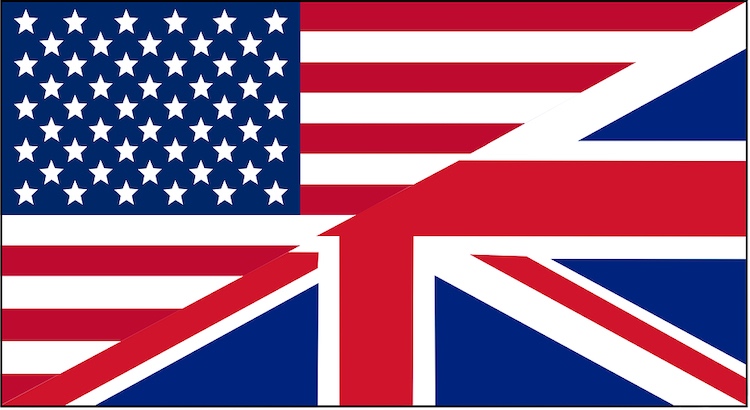British English vs. American English: Major Differences Explained
British English and American English share many roots, but the two forms of English can differ in many ways. If you travel, watch movies, or work internationally, it's important to know these differences for clear communication.
Main Areas of Difference Between British and American English
- Spelling
- Vocabulary
- Pronunciation
- Grammar
- Date and number formatting
George Bernard Shaw once joked that England and America are "two countries divided by a common language." While the core of both versions is the same, key differences can sometimes cause confusion or even embarrassment.
Spelling Differences
American and British spelling rules split long ago. Much of American English spelling comes from efforts to simplify words and match pronunciation, especially after Noah Webster published the first American dictionary.
Here's how spelling often varies:
-
Words ending in -our in British English usually end with -or in American English.
Examples: colour (BR) → color (US), flavour (BR) → flavor (US) -
Words spelled with either -ise or -ize in British English always use -ize in American English.
Example: organise/organize (BR) → organize (US) -
Verbs ending with -yse in British English end with -yze in American English.
Example: analyse (BR) → analyze (US) - Doubling consonants, such as travelled (BR) vs. traveled (US)
-
Some words use "ae" or "oe" in British English, but only "e" in American English.
Examples: oestrogen (BR) → estrogen (US), leukaemia (BR) → leukemia (US)
For more details on these language differences, check dictionary resources or text translation services for help.
Vocabulary Differences
Common objects and actions may have different names in British and American English. Using the wrong word can cause confusion, especially in conversation.
- Trousers (BR) – Pants (US)
- Lorry (BR) – Truck (US)
- Flat (BR) – Apartment (US)
- Jumper (BR) – Sweater (US)
- Chips (BR) – French fries (US)
Other examples include "boot" (the back of a car in the UK, "trunk" in the US) and "lift" (an elevator in the UK).
For global businesses or travelers, using the right vocabulary is important for understanding and being understood.
Pronunciation Differences
Pronunciation shifts greatly between the two versions of English. American English is known for its "r-colored" vowels, so words like "car" sound very different compared to their British counterparts.
While many English speakers can understand each other, some pronunciations can be confusing. For example:
- Schedule — "shed-yool" (BR), "sked-jool" (US)
- Route — "root" (BR), "rowt" (US, sometimes "root")
Grammar Differences
Grammar tends to vary less than spelling and vocabulary, but there are some key differences.
-
Collective nouns: American English treats collective nouns as singular.
Example: "The band is excellent." -
British English can use singular or plural for these nouns.
Example: "The staff are working hard." or "The staff is working hard." -
Have/take: British English uses "have" or "take" for actions like "taking a bath," but American English generally only uses "take."
Examples: "Let's take a shower" (US); "Let's have/take a shower" (UK) -
Past participle: "Got" (British) vs. "gotten" (American).
Example: "He has got better" (UK); "He has gotten better" (US) - Present perfect: British English uses present perfect to describe recent events with present results ("Have you eaten yet?"). American English often uses simple past ("Did you eat yet?").
If you need precise grammar for business or academic use, you can benefit from transcription proofreading services.
Formatting Dates and Numbers
English-speaking countries write dates and numbers differently.
- Dates: In the US, the format is month-day-year (06/20/2024). In the UK, it's day-month-year (20/06/2024).
- Numbers: Americans use commas to separate thousands (1,000), while British English may use spaces (1 000) or follow the same rule as Americans.
Clear Communication for Global Audiences
If you write for an international audience, it's wise to pick one style and use it throughout your work. Tools and professional services can help you translate or convert between British and American English.
Key recommendations:
- Decide which version to use based on your target audience.
- Use translation or proofreading tools for accuracy.
- Be consistent in your writing style.
- Use trusted transcription services for interviews or records when working internationally.
Conclusion: GoTranscript Makes Language Transitions Simple
While British and American English have distinct features, understanding these differences helps prevent confusion and creates more effective communication. Whether you need text translation, audio translation, or accurate subtitling between language varieties, GoTranscript has tailored solutions to meet your needs.
Our team also offers transcription proofreading for documents or media in any dialect. To make your message fit your target audience perfectly, order transcription or order captions with us today.



















 Verified Order
Verified Order